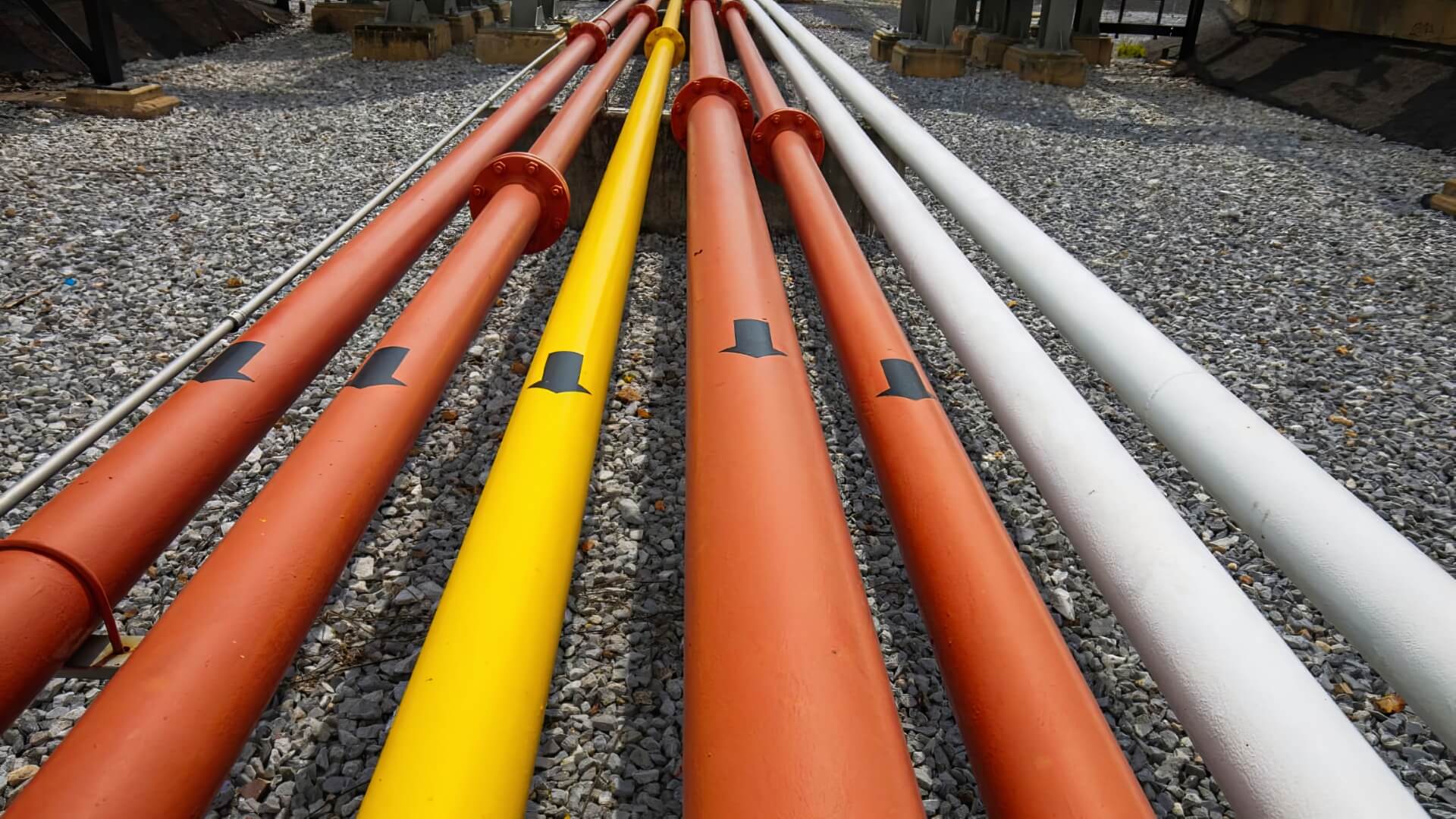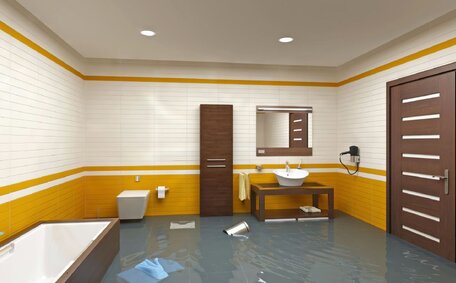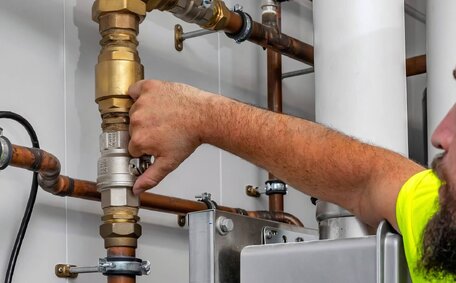Clearing clogged drains is an unavoidable part of home maintenance. Prolonged exposure can cause burns, respiratory irritation, or poisoning. There are safer ways to clear clogs without putting your plumbing and health at risk.
While chemical drain cleaners may seem like an easy solution, they come with significant safety concerns that many homeowners overlook. While chemical drain cleaners may seem like an easy solution, they come with significant safety concerns that many homeowners overlook. In this article, we’ll take a closer look at whether chemical drain cleaners are safe to use and suggest some natural drain-clearing alternatives you can try instead.
What Are Chemical Drain Cleaners?
Chemical drain cleaners are powerful caustic chemicals designed to break down and dissolve materials causing clogged drains. The active ingredients in these products include:
- Sodium hydroxide (also known as lye or caustic soda) - This is a highly corrosive base that can dissolve hair, grease, and other organic materials.
- Sulfuric acid - A strong acid capable of eating away rust and mineral deposits.
- Bleach - Works as an oxidising agent to react with and break down clogs.
- Peroxide compounds - Act as oxidizers that bubble and fizz to help disintegrate blockages.
- Nitrates - Highly reactive agents that accelerate breakdown of organics.
When poured down a clogged drain, these chemicals work quickly to dissolve, degrade, and weaken the obstruction. However, they can be extremely dangerous if used improperly and caution must be taken when handling chemical drain cleaners.
How Do Chemical Drain Cleaners Work?
Chemical drain cleaners work by using corrosive chemicals to eat away and dissolve blockages in pipes. When poured down the drain, these caustic liquids get to work immediately:
- The chemicals react with water and heat up, releasing fumes throughout the pipes.
- As they flow down the drain, they coat and permeate the clogged material.
- The ingredients attack the blockage, breaking down substances like hair, grease, soap scum, and food particles through chemical reactions.
- This process liquefies solids and disintegrates the clog over 10-30 minutes.
- The pressure of water from the tap or boiling water flushes the dissolved gunk down the pipes.
However, while fast and effective at clearing obstructions, chemical drain cleaners can damage your plumbing in several ways:
- The corrosive ingredients corrode metal pipes, joints, and garbage disposals over time.
- They strip PVC, plastic, and fibreglass pipes of their protective inner coating.
- The chemicals react with pipe materials, causing pitting, cracks, and leaks.
- Fumes released can corrode internal components of the plumbing system.
Repeated use of chemical drain cleaners often necessitates expensive plumbing repairs. Safer methods like mechanical cleaning, boiling water, or baking soda and vinegar help clear clogs without putting your pipes at risk.
Types of Chemical Drain Cleaners
There are a few main types of chemical drain cleaners that tackle different clog-causing materials:
Acid-Based Cleaners
These use sulfuric acid or hydrochloric acid to dissolve inorganic materials like hair, grease, soap scum, and light sediment. Brands like Draino and Liquid-Plumr make acid-based options.
Alkaline or Caustic Cleaners
Caustic soda or lye (sodium hydroxide) breaks down organic matter like food scraps and grease. Mr Muscle and Drano contain alkaline chemicals.
Oxidising Cleaners
Bleach, peroxides, or nitrates in these drain cleaners act as oxidizers to react with and degrade organic clogs.
Enzymatic Cleaners
These contain enzymes that liquify organic gunk but are less harmful to pipes than other chemicals. However, they are slower-acting and less powerful.
It’s important to note chemical drain cleaners should only be used for light clogs, not as regular maintenance. Acid cleaners work best on inorganic clogs while alkaline ones target organic obstructions. Always follow instructions carefully.
Risks and Dangers of Chemical Drain Cleaners
While highly effective at clearing clogs, chemical drain cleaners pose significant safety hazards that must be considered:
Health Dangers
Exposure to caustic drain cleaning chemicals can cause:
- Skin and eye burns from splashes or fumes.
- Nose, throat, and lung irritation from inhaling vapours.
- Nausea, vomiting, and breathing issues if accidentally ingested.
These corrosive ingredients can also react to produce toxic gases like chlorine and hydrazine hydrate.
Fire and Explosion Risk
The heat and fumes released when chemical drain cleaners react can be flammable and lead to blazes or explosions in confined spaces.
Environmental Damage
Chemical drain cleaner residue washed down drains can harm septic systems and contaminate groundwater if the chemicals aren’t neutralised.
Pipe Corrosion
Repeated use eats away at metal pipes and fittings, weakening plumbing infrastructure over time.
To avoid these significant risks, consider safer natural drain cleansing methods or call a professional plumber to properly and safely address serious clogs.
Safer Alternatives to Chemical Drain Cleaners
While chemical drain cleaners provide a quick fix, natural methods are safer for clearing simple clogs without the risks.
Mechanical Clearing
A sturdy plunger can manually dislodge blockages in bath, sink, and shower drains. Place the plunger firmly over the drain and plunge up and down rapidly to loosen the clog. You can also use a plumbing snake (or drain auger) to fish out hair and debris hooked deeper in pipes.
Boiling Water
Pouring a pot of boiling water down the drain can help melt and wash away grease clogs. Pour slowly and repeat until the water drains freely. The heat will liquefy grease and the pressure can help dislodge the obstruction.
Baking Soda and Vinegar
The fizzy reaction helps break up gunk. Let sit 15 minutes then rinse with hot water.
Pour 1⁄2 cup baking soda down the drain followed by 1 cup heated white vinegar. A homemade drain cleaner of baking soda and vinegar provides a chemical-free solution.
Prevention
Prevent clogs by regularly pouring a mix of baking soda and salt down drains as a cleaner. Use drain strainers to catch hair and debris. Avoid pouring fats, oils, and grease down sinks.
For tougher clogs or blockages deeper in your pipes, call a professional plumber. They have the right tools and expertise to clear drains safely, fixing any underlying issues.
When to Call a Professional Plumber
While DIY drain cleaning methods work for minor clogs, there are certain situations where it’s best to call in a professional plumber right away:
Recurring Blockages
If you find yourself constantly battling clogged or slow-draining sinks, tubs, and showers, the issue likely requires professional attention. Chronic clogs point to a bigger underlying problem like pipe damage, tree root invasion, or a faulty fixture or drain.
Overflows or Backups
Clogs that result in overflows, backups, or flooding indicate major blockages. Attempting to handle major clogs yourself can worsen water damage. professionals have the tools and expertise to clear obstructions and address any resulting water damage safely.
Multiple Fixture Issues
When all fixtures in your home are draining slowly or backing up, the problem lies in your main sewer line. Professionals have specialised augers that can snake through long sewer and drain pipes to clear blockages.
Bad Odours from Drains
Foul sewage smells emerging from drains often means you have a cracked pipe, broken seal, or venting issue allowing sewer gases to enter the home. Only a qualified plumber can diagnose and remedy hazardous drain ventilation problems.
Rust Coloured Water
Rusty or discoloured water coming from taps after chemical use is a sign of corroded pipes. Professional hydro-jetting services can remove chemical buildup and scale from damaged pipes.
For reliable drain cleaning and repairs without the risks of DIY chemicals, contact the professional team at Moorebank Plumbing today. Their expert services keep plumbing and drains working safely.
Conclusion
Chemical drain cleaners may seem like a quick fix for clogged drains, but they come with significant health and safety hazards. The corrosive ingredients in these products can damage pipes, release toxic fumes, and contaminate the environment when washed down drains. While effective at dissolving blockages, repeated use of chemical drain cleaners eats away at your plumbing and can necessitate expensive repairs over time.
Prolonged exposure can also lead to injuries.
Fortunately, there are safer methods to clear simple clogs at home without putting your plumbing and wellbeing at risk. Mechanical clearing with plungers or snakes, boiling water, and natural solutions like baking soda and vinegar can all help remove minor obstructions. Mechanical clearing with plungers or snakes, boiling water, and natural solutions like baking soda and vinegar can all help remove minor obstructions.
Their services prevent damage from improper chemical use.
While chemical drain cleaners may seem convenient, they pose significant safety concerns. Try natural methods first, but don’t hesitate to call a professional for serious plumbing issues to avoid the risks of DIY chemicals.






